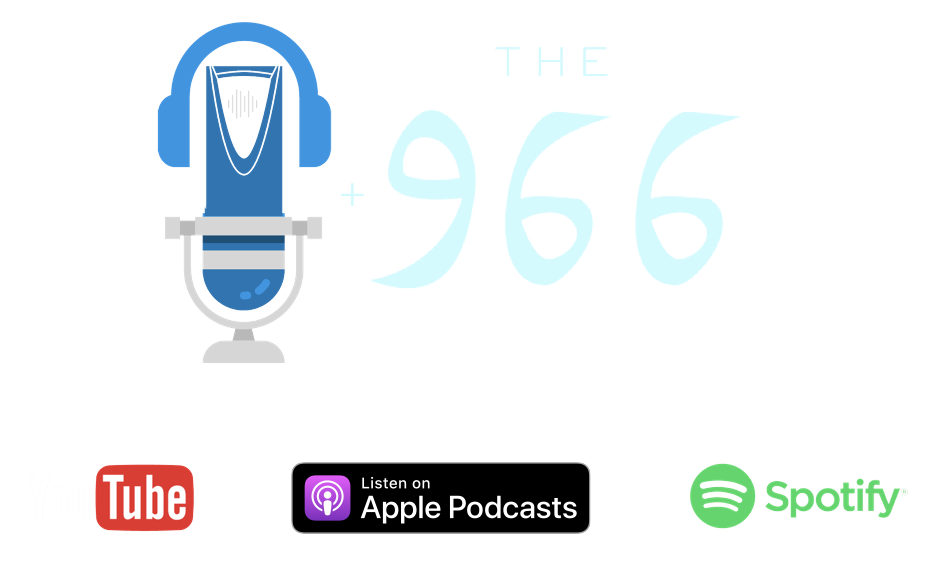Saudi businessman and philanthropist Amr Khashoggi joins The 966 to talk about some interesting developments in the mining and minerals sector in Saudi Arabia, the red hot Saudi IPO market, Saudi foreign policy, Saudi Arabia’s economy and Vision 2030 and many more topics.
2:10 – Richard’s “One Big Thing” this week: Al Dawaa Medical Services Co., one of the largest pharmaceutical retail companies in Saudi Arabia, will list 25.5 million shares on the Saudi Stock Market (Tadawul) seeking to raise about $500 million. Al Nahdi Medical Co., the kingdom’s largest pharmacy retail chain, plans to seek about $1.3 billion in an IPO in the next few months in what could be the largest share sale in the kingdom since state oil giant Saudi Aramco went public in 2019…
10:35 – Lucien’s “One Big Thing” this week: The Saudi Ministry of Industry and Mineral Resources has opened the next stage for licensing the Khnaiguiyah site, the largest exploration site in the Kingdom. Extensive exploration work already has been carried out at Khnaiguiyah site, covering 100,000m drilled and a 3D geological model. The Saudi Geological Survey has confirmed the site’s considerable geological potential of approximately 26mn tons of zinc and copper, both critical minerals for the global energy transition. With over 40 years of experience in the sector, Amr talks about the importance of the revitalization of the mining sector in the Kingdom and the opportunities that are waiting for investors.
25:10 – How has Saudi foreign policy evolved since the rise of King Salman, and how the Kingdom’s position and influence in global affairs has grown? This is the starting point for The 966’s discussion with Amr Khashoggi, who begins by placing it in context starting with the 9/11 attacks and the damage that did to U.S.-Saudi relations and Saudi Arabia’s reputation. After those attacks, Amr represented the Kingdom in delegations that engaged directly with graduate students and professors at U.S. Universities for several years. Amr also discussed how the U.S.-Saudi relationship remains strong and endures from president to president and has withstood an array of tests and challenges.
47:52 – The conversation pivots to talking about Amr Khashoggi’s work as chairman of Amkest Group, how his business has grown under the Kingdom’s Vision 2030 economic and social diversification plans, and the renewable energy space, in which Amkest is invested. The group then discusses the good work that Amr is doing with Qaederoon, which is a successful non-profit in Saudi Arabia and with an inspiring mission.
1:17:00 – Yallah! 🐪 Six news stories to get you up to date headed into the weekend…
•The Saudi Cabinet has approved a license for a local digital bank to be established with a capital of$440 million. The D360 Bank will be established through a consortium of individual and corporate investors, led by Derayah Financial Company, with the Public Investment Fund being one of the main investors. With the newly issued license, the total number of licensed banks in the Kingdom will reach 35, including 11 local banks, three local digital banks and 21 foreign bank branches, according to SAMA.
•Golf Saudi has attained full member status of the European Disabled Golf Association (EDGA) as part of its efforts to promote the sport for all players in Saudi Arabia. The news was revealed during the Saudi International tournament by Majed Al Sorour, CEO of Golf Saudi and the Saudi Golf Federation, who said its membership in EDGA would enhance the accessibility of golf in Saudi Arabia.
•NADEC – the country’s leading agricultural and food processing company and one of the largest in the Middle East and North Africa has announced that its solar energy project is now commercially operational. The solar PV park was developed as part of a 25-year corporate power purchase agreement between NADEC and French energy company ENGIE, the first of its kind in the country. The facility is roughly equivalent to 21 football pitches, has a capacity of 30 MW and is expected to lower carbon emissions by 53 million kg per year.
•Fresh off her sold-out concert at The Maraya Concert Hall in AlUla, singer-songwriter Alicia Keys joined Saudi Ambassador to the United States, Princess Reema Bint Bandar Al-Saud, and a group of other creative Saudi women in an intimate conversation under the theme “Women to Women.” The off-the-record dialogue, hosted by Good Intentions, a newly launched Saudi-based creative consultancy, was held in a town hall style, where audience members asked questions, made comments, and interacted with the panel.
•On Sunday 4% of Saudi Aramco shares worth $80 billion were transferred to the kingdom’s Public Investment Fund which is taking the lead in efforts to transform the Saudi economy and diversify away from oil revenues. The Saudi state remains the largest shareholder in Saudi Aramco after the transfer process with more than 94% of the company’s shares. The shares transfer is expected to help the PIF achieve its goal of growing to over $1 trillion under management by the end of 2025.
•For centuries millions of saksaul trees, commonly known by their Arabic name Al-Ghadha, provided firewood, animal feed and respite from the desert heat for the Bedouin forefathers of modern Saudis. Planting saksaul trees is now part of green initiative by the Saudi government aimed at reducing carbon emissions, pollution, and land degradation. 250,000 of the drought-resistant trees will be planted this year in the central Qassim region. The kingdom aims to plant 10 billion trees in the coming decades as well as work with other Arab states to plant an additional 40 billion trees across the Middle East.
